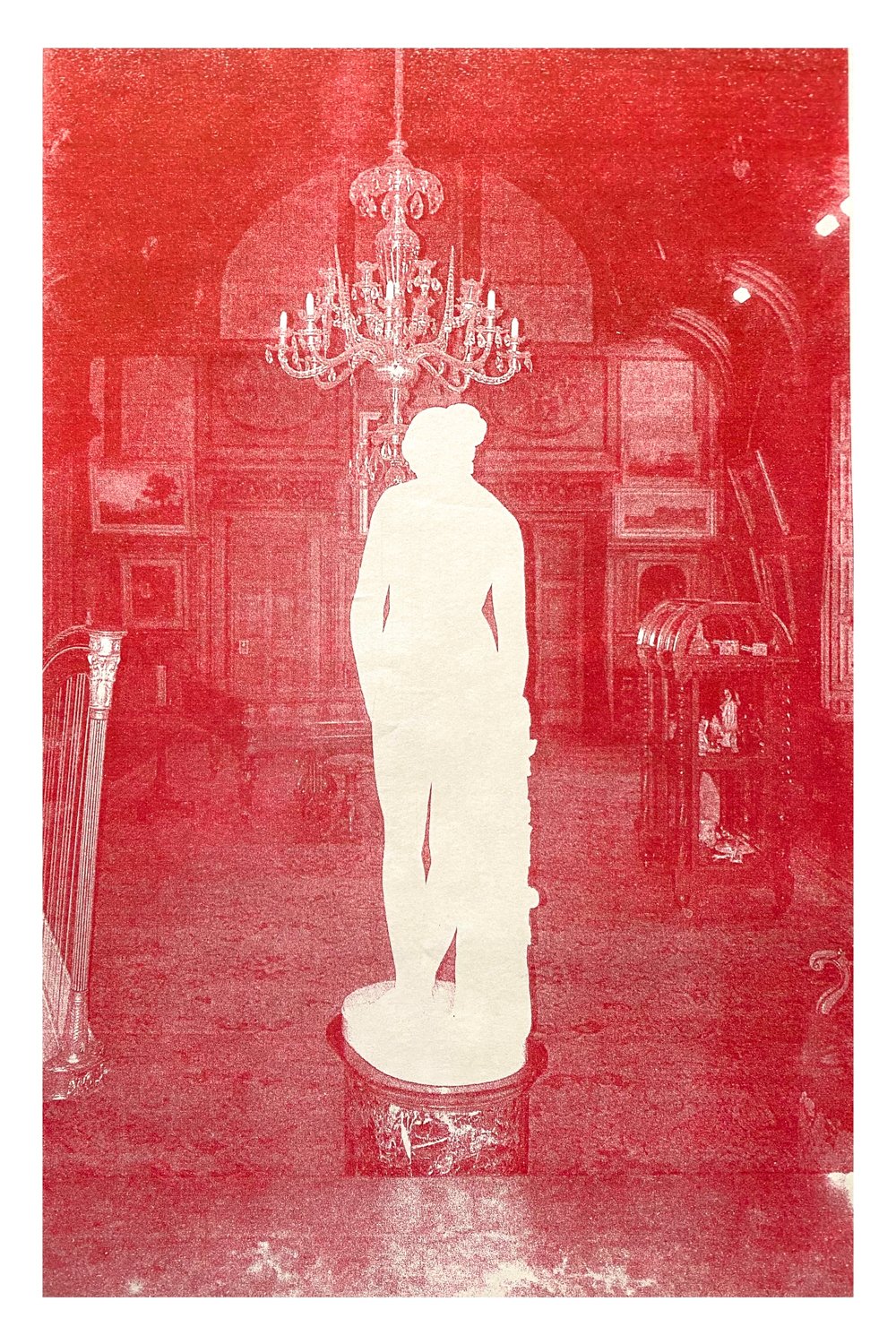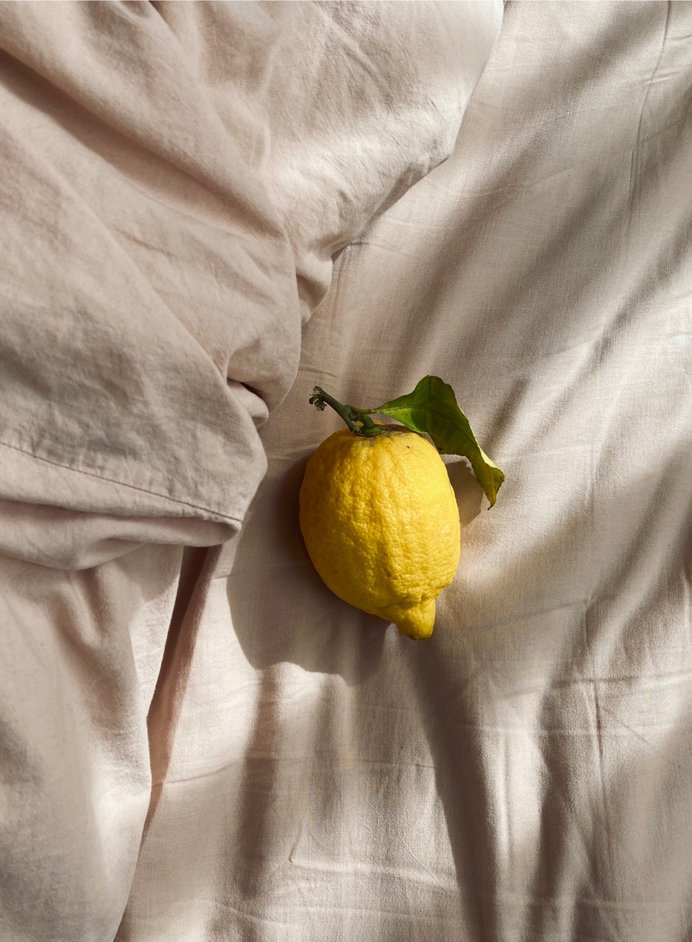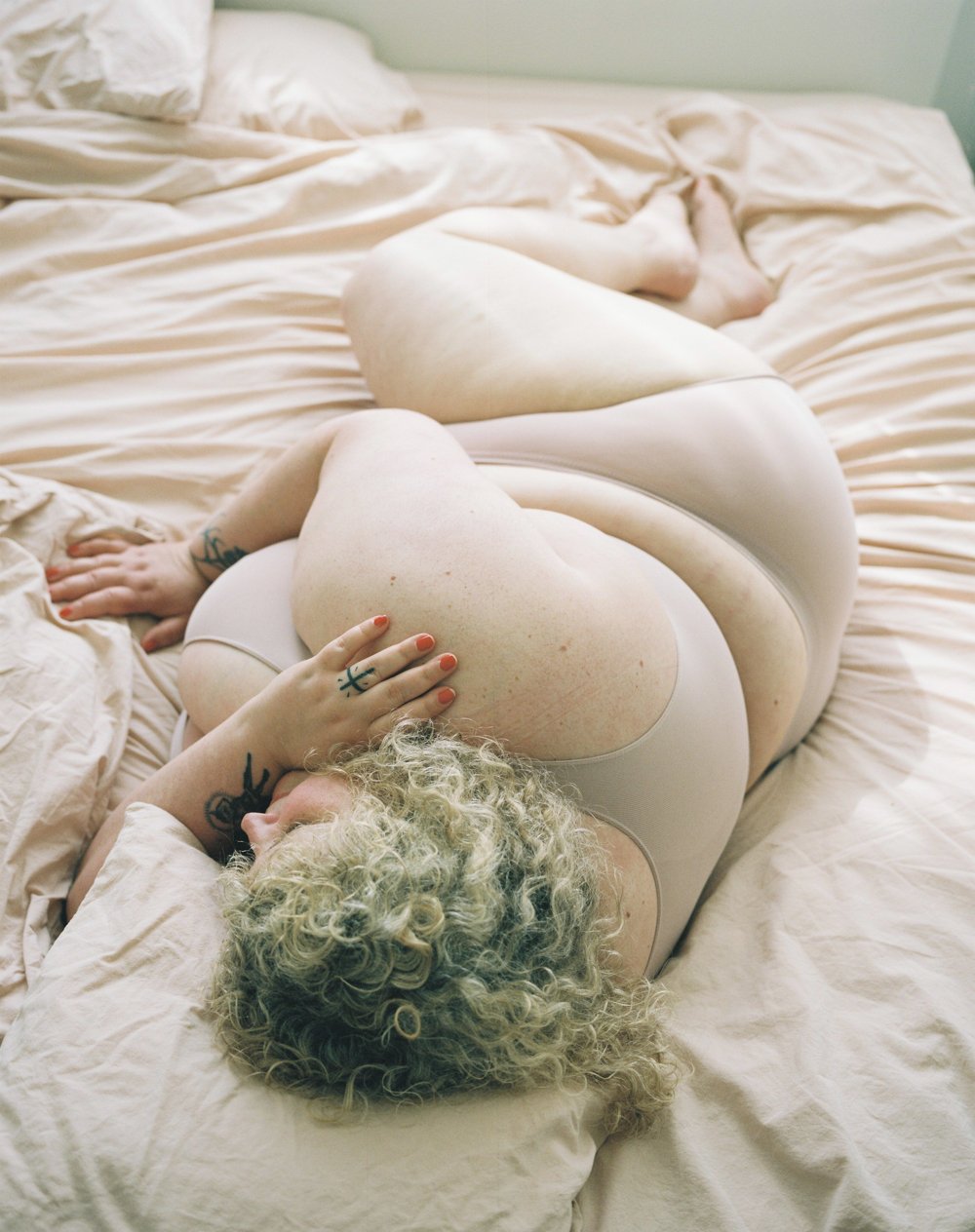Flannery O’kafka
Intimate and sometimes confessional, O’Kafka’s work explores sexuality, religion and kinship through a neurodivergent lens. The artist uses vulnerability, humour, and a sensuality of colour and shape to communicate on an emotional level. Her photographic and text work express the joy and pain of navigating the world in an all too mortal body.
How can
one lemon
feel so important?
It’s somehow
everything
that life
has handed me.
As big as my hand,
beautiful,
(and like most things right now)
a bit special.
I brought it
into my bed,
like a baby,
like a lover.
Tonight it will be
sliced and violently
squeezed.
I will drink
its blood
in remembrance
of me.
-
Untitled from Only Fanzine, 2020
Clytie from Only Fanzine, 2020
Untitled from Only Fanzine, 2020
Untitled, 2021
Secret bunker choir robes from Only Fanzine, 2020
Untitled from Only Fanzine, 2022
Body I and II: First two photos of my body that I ever made, an attempt to see myself —a time for stormy weather, 2020 [two images]
Untitled, 2021
Untitled, Collaboration with Kirsty Mackay, 2021
Untitled sketch of a poem about a lemon, 2021
Flannery O’kafka (she/they) is an artist living and working in Glasgow, Scotland. Their practice is mostly photographic, but she also works with text & installation, writes filthy poetry, and broadcasts a stupid amount of Instagram stories most days. In the Summer of 1976, O’kafka was born a small-town scandal, adopted, and raised on the banks of the Ohio River in the lap of the American suburban dream. Raising (and often photographing) her own family in Scotland, she graduated from Glasgow School of Art in 2018. Her work has been widely exhibited both in the UK, the States, and internationally.
Since graduation, O’kafka has taken part in residencies, collaborations, and publications—recently granted the Royal Scottish Academy’s Morton Award.
All work is an emotional document, a cumulative clumsy stab at a self portrait, a mourning diary—a public autobiographical/fictional exhibition of the comedy of suffering & stigmata, and an examination of the picturing of disability.










